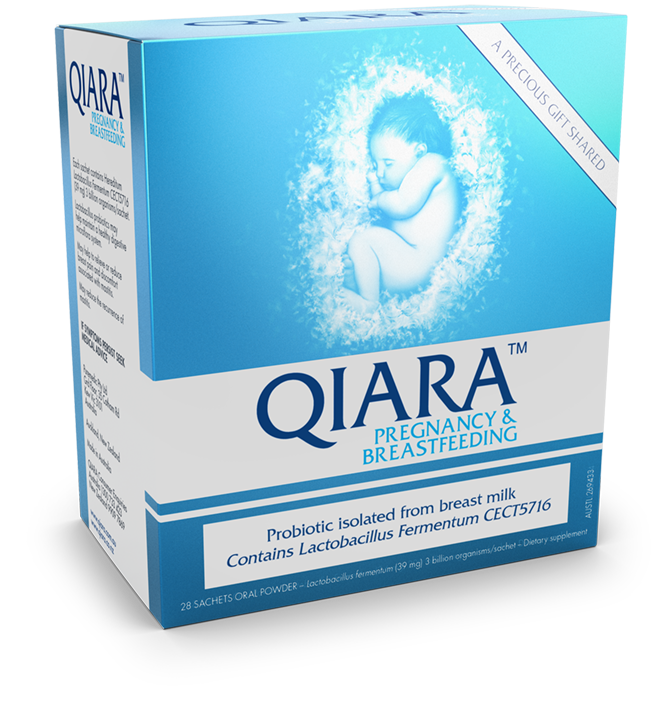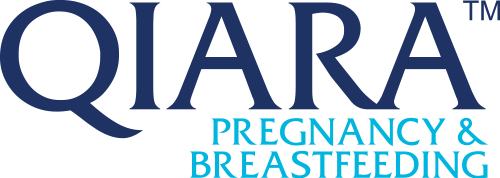Having a C-Section?
A study of 627,600 Australian births reported that women who gave birth by C-Section were 70% more likely to be diagnosed with a complication affecting breastfeeding and their babies are at higher risk of infection.
C-section mums are routinely administered antibiotics to prevent infection which lower the levels of good bacteria in breast milk which may lead to an imbalance between good and bad bacteria (dysbiosis). Lower levels of good bacteria may increase the potential for bad bacteria to flourish which may lead to breast pain and mastitis. Taking Qiara daily before and after your C-section may assist in maintaining the balance of good bacteria in breast milk.
Group B Streptococcus (GBS) positive?
Group B Streptococcus (GBS) is a type of bacteria that can cause illness in people of all ages. Anywhere from 10-30% of pregnant women carry GBS in their bodies. Many hospitals and obstetricians routinely swab for GBS during pregnancy. If your
health professional recommends antibiotics in labour following a GBS positive swab, commence Qiara immediately and continue after birth and while breastfeeding to increase levels of good bacteria that may be disrupted.
Breastfeeding
A mother’s microbiome and breast milk can have a significant impact on the overall health of both baby and mother as well as the establishment of her baby’s own microbiome. Breastfeeding continues the important transfer of beneficial bacteria
that begins during pregnancy. Qiara Pregnancy & Breastfeeding is a single strain probiotic isolated from human breast milk. Take one sachet daily while breastfeeding.
Pregnancy
Our microbiome begins its colonisation in the womb, is further impacted by the method of delivery and continues its development during breast feeding. An infant’s microbiome is fully established by the time it is 3 years old. So a healthy and
robust microbiome before and during pregnancy, birth and lactation has life long benefits for the infant. Qiara may help maintain a healthy digestive microflora system. Take one sachet daily during pregnancy.
Preconception
Research has shown that a baby inherits many health traits from its parents at conception, so establishing good gut health can have lifelong benefits for your baby. For more tips on the role breast milk isolated probiotics can play when planning
for a baby, seehttp://www.conceivebaby.com.au/fertility-microbiome-probiotics-need-know/
Dosage
Add contents of one sachet to a glass of water or milk, stir and consume immediately. Take one sachet per day. Up to two sachets can be taken daily. Two sachets per day is recommended if you are taking antibiotics. Take Qiara 2-3 hours away from
your antibiotic dosage. Qiara can be taken pre-conception and throughout the entire pregancy, breastfeeding and post-weaning.
IF SYMPTOMS PERSIST SEEK MEDICAL ADVICE


